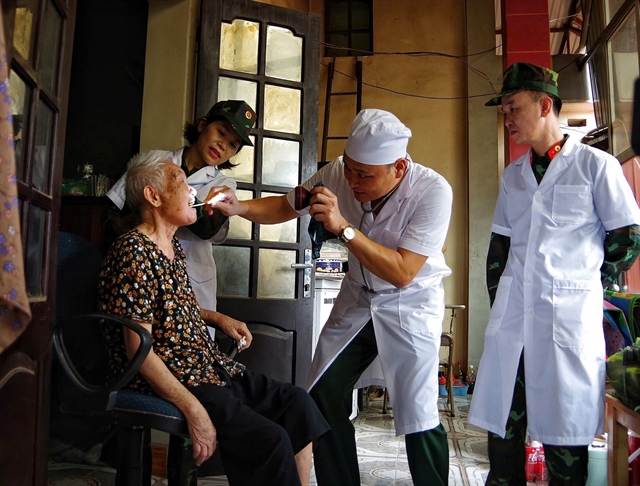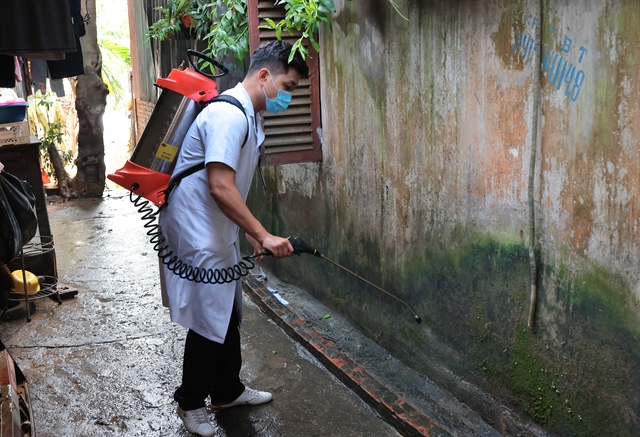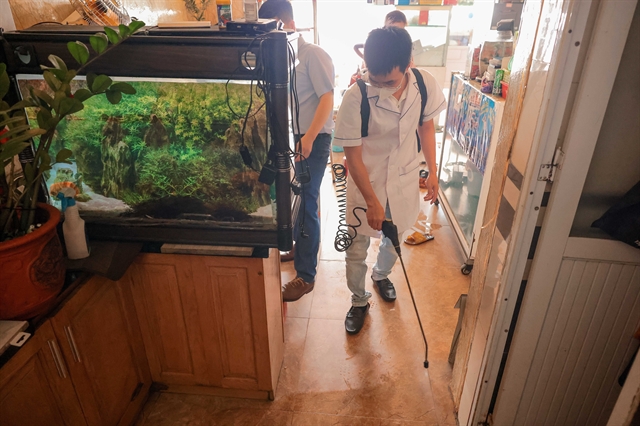Ministry of Health urges supply of medician in flood-hit areas
Society – Economy - Ngày đăng : 15:24, 15/09/2024
 |
| Doctors from Division 325 provide medical examinations and treatment to an elderly in the flood-affected areas of Lục Ngạn District in Bắc Giang Province. — VNA/VNS Photo Danh Lam |
HÀ NỘI — The Department of Preventive Medicine under the Ministry of Health emphasised the urgent need to ensure an adequate supply of medician for disease prevention and treatment for those affected by Typhoon Yagi, as well as floods and landslides in the northern region.
Dr Trần Đắc Phu, Senior Advisor at the Việt Nam Public Health Emergency Operations Centre, said that residents in areas affected by heavy rain and flooding are highly susceptible to gastrointestinal diseases due to contaminated water, unsafe food and poor sanitation conditions.
Common diseases in these situations include trench foot, other skin conditions, colds, flu and eye infections. The humid environment and stagnant water in household items also create breeding grounds for mosquitoes, making dengue fever highly contagious.
The immediate priority is to quickly supply enough medications to prevent, diagnose and treat diseases following the typhoon and floods.
 |
| A healthcare worker disinfect every alley in Hai Bà Trưng District in Hà Nội. — VNA/VNS Photo Hoàng Hiếu |
Currently, Hà Nội’s health sector has established mobile emergency teams ready to respond to potential emergencies.
The city's health department has also directed units to investigate and list flood-prone areas to develop plans for disease prevention, ensuring clean water, sanitation and food safety.
Additionally, the department has asked units to prepare essential medications for common post-flood illnesses and chemicals such as Chloramine B to treat contaminated water.
 |
| A healthcare worker spray Chloramine B in a household in Hai Bà Trưng District in Hà Nội. — VNA/VNS Photo |
In an official dispatch sent to localities to strengthen food safety measures and address the aftermath of Typhoon Yagi, the Department of Food Hygiene and Safety encouraged residents in flood-affected and isolated areas to consume ready-to-eat foods like dry rations, instant noodles, and bottled water.
The Ministry of Health also urged local food hygiene and safety sub-departments to guide people in selecting, preparing, and consuming safe food. Under no circumstances should livestock or poultry that have died be used for food or processed.
If water sources like wells are flooded, they must be filtered and disinfected before use according to health department guidelines. Flood-contaminated or spoiled food must not be consumed. — VNS
